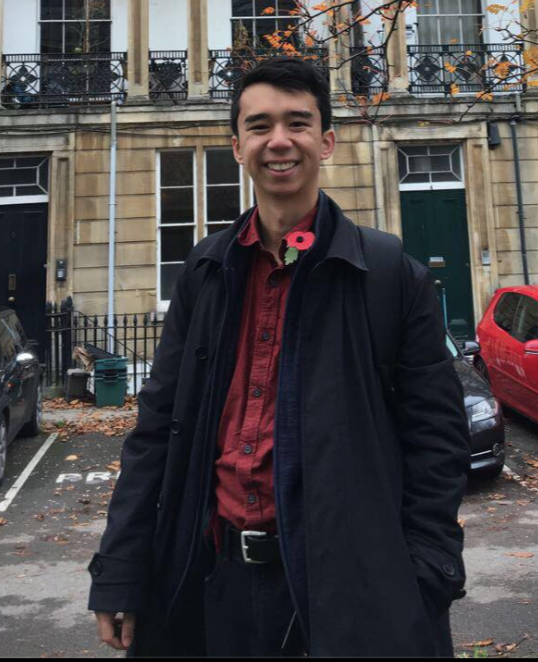By Euan Merrilees, Second Year Philosophy
The poppy’s meaning comes from the fields of Flanders and France that were soaked in blood. Up to 40 million people died in the First World War. From their death, grew new life. Poppies bloomed in those fields, vibrant and red. Some could say that a similar rebirth happened after the Second World War. Since then we’ve seen a long peace. No modern war has ever come close to the kind of destruction seen in WW2. Such a period of peace has not been documented before in human history since the Romans.
The poppy is a potent symbol to so many people. It represents remembrance and hope for a peaceful future. By wearing it you remember and respect the past tragedies, and the dead. We should respect those who wear a poppy, it may mean a great deal to them. At the same time, we should respect people who, for reasons, choose not to wear a poppy. Perhaps you have your reservations about past colonial wars and disagree with recent British military action, or maybe it just doesn’t suit the outfit. Again, these positions should be respected.

However, if you would follow a recent trend of showing such a brazen act of utter disrespect by shaming people for wearing the poppy, you’d be demonstrating keen arrogance and frank historical ignorance.
Recently I heard the claim that if you’re a person of colour then you shouldn’t support the British Legion because of its alleged racist heritage. I didn’t realise that remembering those who died in past wars was racist. I guess it is now. As a person of colour who lived for 16 years in Singapore, a place where soldiers of many races and nationalities fought together in 1942 to defend the island against fascist Japan, I find this claim disgusting, insulting, and disrespectful to those who died.
Under the orders of Colonel Tsuji Masanobu, up to 50,000 ethnic Chinese were slaughtered in the Sook Ching massacre, meaning ‘purge through cleansing’. British soldiers that eventually surrendered to the Japanese were subjected to horrific POW conditions, building the ‘Death Railway’ in Myanmar (then Burma). Indian POWs, who refused to join the Japanese ‘Indian National Army’, were killed or subject to human experimentation.
It’s important to remember people whose service helps all of us. That’s why we remember the unique sacrifices our Armed Forces make. See what we'll be remembering in 2020 ➡️ https://t.co/bLOqVqPg9u pic.twitter.com/lAxLFtkMlr
— Royal British Legion (@PoppyLegion) December 12, 2019
The claim that the poppy only signifies respect and remembrance for white people or white soldiers is a paradigm demonstration of ignorance. One needs only to look on the British Legion website and see how it honours the 1.4 million Indian troops that fought during WW1 or how it celebrates the legendary Nepali Gurkhas, many of whom have won Victoria Crosses, Britain’s highest military honour. The Khadi poppy was recently created to honour those specifically from South Asia who fought alongside Britain in the World Wars.
This year marks the 75th anniversary of the D-Day landings, the start of the battle to liberate Western Europe from fascism. It also marks the 75th anniversary of the battles of Kohima and Imphal, fought by British 14th Army in India – aptly nicknamed the ‘Forgotten Army’. The Forgotten Army was made up of Indian, British, and African troops, all fighting to defend India from Japanese invasion. Those crucial battles saw the fate of India thrown into balance, and were only won by the determination, cooperation and sacrifice those who fought with the multi-racial 14th army.
Remember
I am under no illusions about Britain’s shameful colonial past. I am not ignorant to the colonial atrocities Britain is responsible for. I also don’t approve of a lot of the military conflicts that Britain has recently involved itself in. However, the historical truth of many things is very complex. Stating careless absolutes and generalizations such as ‘Churchill was a war hero,’ or ‘Churchill was a white supremacist,’ does an injustice to the past. History, the whole of history, needs to be remembered. That is why we wear the poppy.
Not only white British soldiers are honoured by the poppy, but all those who have died in wars, including civilians. This is the meaning behind it. To remember and respect the dead, and to learn from history so we may never fall into such a destructive conflict again.
On June 10th 1944, the Nazi 2nd SS Division massacred 624 French civilians in the village of Oradour-sur-Glane. The ruins of this village have been preserved. It stands as martyrdom for thousand upon thousands of other martyrs created by a world at war.
Outside stands a sign: Souviens-Toi.
Remember.
Do you think it's important to wear the poppy?








